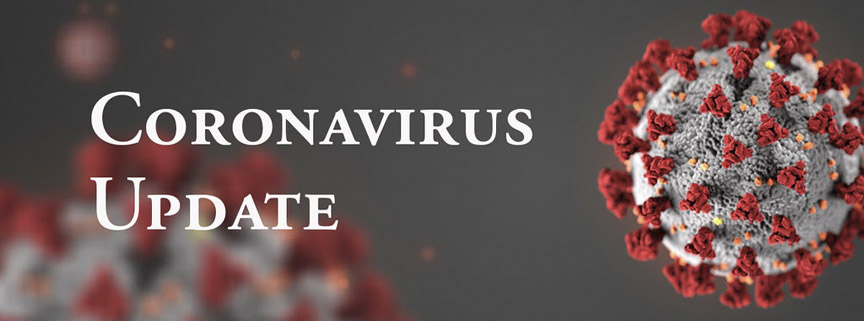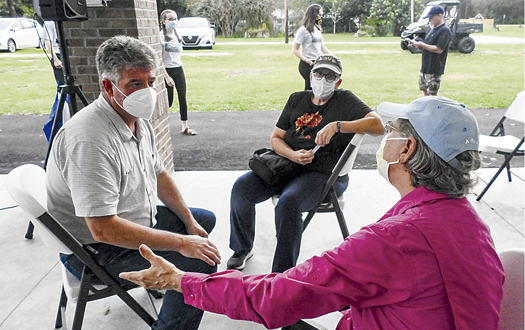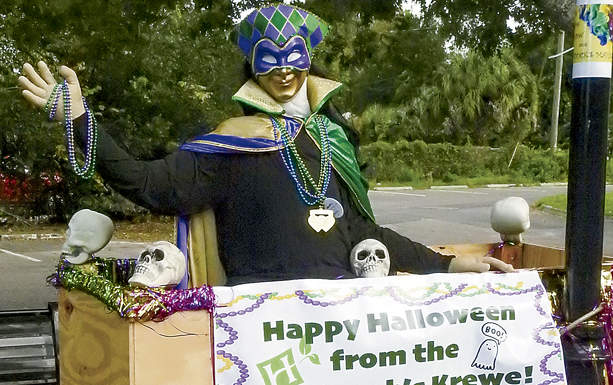HIGH SPRINGS ‒ Dae Jung Kim has led a life of both adversity and accomplishments. Today Kim lives in High Springs, which is quite a distance from his native South Korea. The self-made millionaire entrepreneur is investing in local businesses and bringing employment to the area with the added goal of improving health through diet at several local restaurants. He also is heavily involved in protecting the environment and the rivers. In the short time he has been in High Springs, he has invested in two restaurants, a miniature golf course, a chef training academy, a 64-acre farm and a proposed RV park in Gilchrist County, as well as additional land for a conservation area.
Kim was born in South Korea to a financially struggling family. He was a small and sickly child with a number of ailments including auto immune disease, which would follow him into adulthood. At 12 years old, he started working as a newspaper delivery boy and in his mother's restaurant and has worked ever since. Kim emigrated to the United States in his early 20s, and despite his small size, he worked manual labor jobs while attending school, which further worsened his medical issues.
Founded D.C. Restaurant in 2002
In 2002 Kim opened the Java Green coffee house and restaurant in Washington D.C. “Java Green worked to create a better world by encouraging a socially-responsible, conscious lifestyle,” said Kim. “We were a green business using organic foods including fruits, vegetables, breads, beans, rice and noodles. Our goal was to create a restaurant that offered a healthier alternative as well as being socially conscious of environmental and humanitarian issues.”
Having seen hard times himself, Kim also helped those on the fringes of society that had trouble finding jobs including ex-felons, the homeless, veterans suffering from PTSD and those suffering from mental disabilities by giving them jobs at the restaurant and providing housing. “I believe that society and businesses that have the resources should be part of the community and help turn people’s lives around,” Kim said.
Java Green was a quick success, going from $40,000 profit to $100,000 in a year and becoming a popular place for eco and health minded customers, vegetarians and multiple nonprofit groups, immersing in a variety of causes as well as creating dynamic recipes. Java Green was voted one of the top five best green restaurants in DC in 2006 and the best green restaurant in 2007 and 2008.
But the long hours and hard work at the restaurant took its toll on Kim's health. While researching food for his restaurant, Kim realized a better diet could help solve some of his health issues. He also began studying eastern medicines and therapies and turned to a healthier diet. As he continued the diet and began to exercise, his health issues disappeared. With regular exercise, yoga and martial arts he continued to gain strength and mobility and eventually took up running again.
Formed J. Green Natural Foods Partnership
As things were looking up for Kim both health and business wise, he and entrepreneur Ethan Brown formed a partnership company, J. Green Natural Foods as the food production partner for the Java Green Cafe and also opened a second restaurant called Cafe' Green.
Then the recession hit just after the new lease was signed but before the second restaurant could open. Struggling financially, it took two years to open the second restaurant. Bank financing was withdrawn for the new restaurant and the J. Green business due to the recession and they were stuck paying the lease with income from Kim's Java Green restaurant. Kim ended up selling all but 10 percent of his shares in the new restaurant and J. Green so he could focus on his restaurant, and he wrote it off as a loss. Brown changed the name to Savage Rivers and moved to California to start over.
Financially things continued to get worse for Kim. Taking no money for himself, he continued to try and keep the restaurant afloat and pay his employees. In 2010, he lost his house and in 2012 he lost his restaurant as well. Kim was suddenly destitute and homeless, sleeping on friends’ couches with just a bicycle to get around.
Destitute and Homeless
He found work shoveling snow, collecting trash and working two days a week at a farmer’s market. While working at the farmers market, Kim discovered there was a lot of food that was thrown out as the vendors tore down. Kim collected the food in his backpack and rode his bike to the park to distribute it to the homeless and those in need. Despite his own dire situation, he was still focused on helping others and maintained a positive outlook.
“Happiness comes from the inside and a positive attitude makes all the difference. Money and possessions are only useful in how you give to others and to find your own inner peace,” Kim said. As people noticed his energy, they began to ask him to help them achieve that, as well as a healthy diet that had helped him so much. Still riding his bike and basically homeless, he held workshops for free and was paid by a medical college to lecture to their students about healthy living. For five years he rode his bike everywhere while working at the farmers market and providing the thrown away food to those who needed it.
His sister loaned him $8,000 for a car, but he saw friends and former employees in even more dire situations, and bought several of them bicycles for transportation and gave cash to those who needed food or rent. The $8,000 dwindled down to $2,000. By the time he found a car, the remaining money was stolen.
Surprising Turn of Events Brings Wealth
Kim had written off the J. Green company as a loss, but he contacted his former partner to see if there was enough in his 10 percent stock to buy a car. In the meantime, Brown and investors backed a plant-based meat substitute he was developing and in 2009 had changed the company name to Beyond Meats. It took them another five years to come up with a recipe for Beyond Meat’s first product, “Chicken-Free Strips,” which the company released to limited locations in 2012. In 2014 Beyond Meat expanded its presence from 1,500 to 6,000 stores across the U.S. and announced it had begun development of a new product to emulate beef burgers, which was released in February 2015 as the Beyond Burger. The company continued to grow in popularity.
About the time that Kim contacted Brown in 2019 the company had gone public as an IPO and stock prices and investment soared. The company was suddenly worth over $11 billion and Kim's 10 percent ownership made him a millionaire. Just as suddenly as his life had collapsed in 2012, it totally reversed in 2019.
Journey to High Springs
Kim left D.C. to start doing the things he had always planned—buying land to create an ecofriendly farm and conservation, protecting the environment, and building sustainable communities as well as helping those less fortunate. In the years he had his business and then been homeless, Kim had gathered a group of loyal friends who had also seen hard times and they now became his employees. “I always remembered what is was like to struggle and it guides my belief in helping others,” Kim said.
Searching for a warm climate with abundant natural environment and farming potential, in 2017 he visited High Springs and decided it was the place he wanted to settle someday. As he began to organize his plans, he spent time helping clean the local rivers and volunteering at Blue Springs Park. He has since bought the Diner and the Great Outdoors and plans to offer high quality fare, with both standard and vegetarian cuisine.
Kim has purchased another building across from the High Springs brewery that will become a bistro and training site for his chefs and others who want to learn vegetarian recipes. It will not be open regularly for customers, but will open for special occasions with a full-course meal for the customer to try new recipes by the chefs. His ecofriendly farm is energy efficient with a water reclamation system and no chemicals. Farm crops will be produced for his restaurant with possible expansion to the open market.
Reaching into neighboring Gilchrist County, he recently received approval of his plan for an RV park. While there has been some concern about the development, Kim points out that this will not be a typical RV park.
Kim says that part of the problem with development of suburb communities is that it occupies land, often destroying the natural habitat of species, using water and energy on an individual and more costly basis. He also references seasonal visitors and snowbirds who are either looking for rentals, condos or hotels to stay in and that the more affluent often have second homes that are unoccupied for much of the year, taking up land that could be used to preserve the environment and habitat of native animals.
“We are looking at a different model for the RV park,” Kim said. “The area where the RVs will camp was already cleared when we bought it, but it covers only a small portion of the purchased land.” Kim plans to leave the remainder as a nature conservatory and a refuge for the endangered Gopher tortoises that are there. The park will be energy self-sufficient powered by solar energy with a water reclamation system to conserve water and keep it out of the groundwater. Kim believes this will help consolidate some of the state’s visitors in a more environmental habitat and leave a smaller footprint than housing and hotel development.
“I believe that all of us must give back to the community and help create a better world to leave future generations” Kim said.
# # #
Email rcarson@
alachuatoday.com





